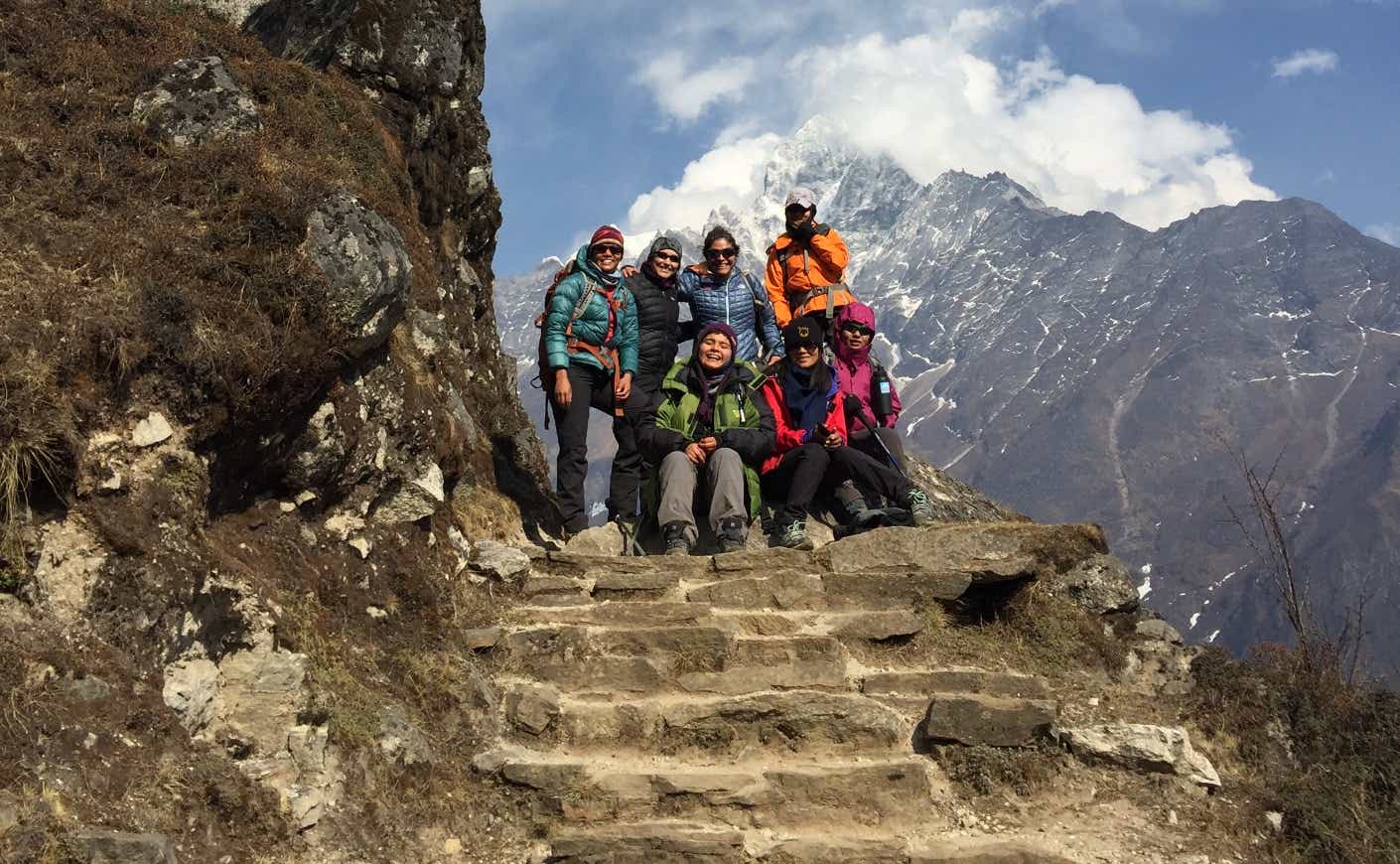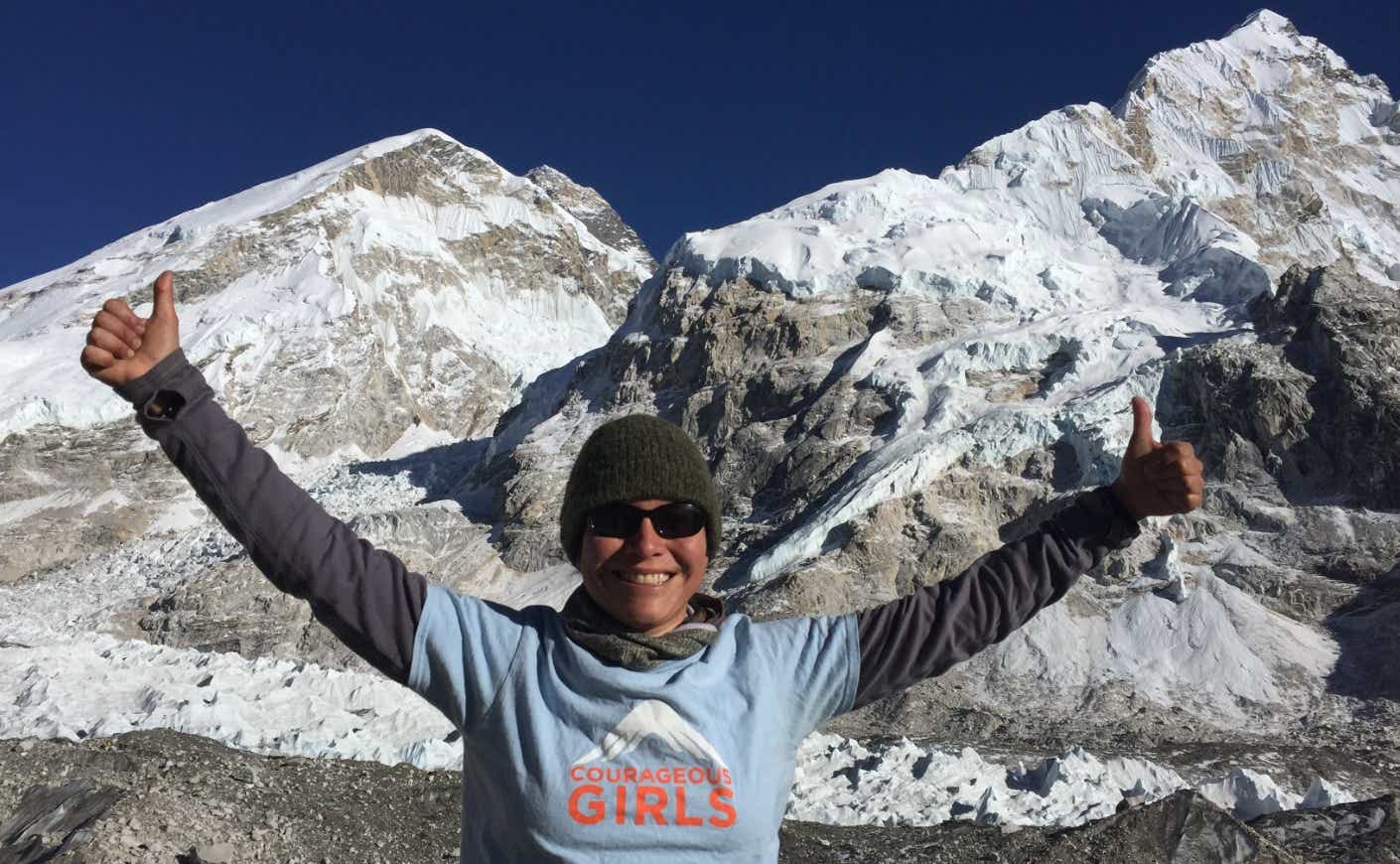We all have our mountains to climb. For some, that journey is metaphorical, and for others, it’s literal. For Silvia Vasquez-Lavado, it was both.
After spending much of her 20s battling alcohol addiction, Vasquez-Lavado summited the Aconcagua mountain in Argentina in 2013 before going on to become the first Peruvian woman to hike Mount Everest in 2016 — then the first openly gay woman to conquer the Seven Summits two years later. “For me, this was the opportunity to show people how they can summit their own inner or outer mountain,” she tells KCM.
Vasquez-Lavado, now 47, says she had virtually no experience before setting out to climb those peaks. But she didn’t let her lack of experience — or even equipment — get in her way. (In fact, the only thing she didn’t have to borrow were the shoes on her feet.) She says that starting from zero is ultimately what made her accomplishments even more rewarding. “Instead of feeling like, ‘Oh my God, I’m petrified,’ I felt a sense of connection,” she says. “I felt a sense of belonging that I had never felt before.”
Believe it or not, climbing some of the tallest mountains in the world wasn’t Vasquez-Lavado’s most challenging hurdle. It was writing her new book, In the Shadow of the Mountain: A Memoir of Courage.
The memoir, now being turned into a big-screen biopic starring actress Selena Gomez, traces Vasquez-Lavado’s triumphant journey from growing up in Peru to coming to the U.S. on a college scholarship, becoming one of the most influential Latinos in Silicon Valley, and later, of course, an accomplished mountaineer. But it’s also a story of pain: Starting when she was just 6 years old, Vasquez-Lavado suffered horrific sexual abuse from someone thought to be a trusted family friend.
The former eBay executive didn’t start climbing mountains until her 30s, after she attended a meditation retreat with her parents, where she envisioned herself reconnecting with her inner child while tripping out on the psychedelic drug ayahuasca.
“I just had nothing to lose,” she tells us. “If anything, I remember going into the session feeling like, ‘Okay, well, let me find out who are the negative people that are causing so much pain in my life’, but the first person that came is me as a little girl; the little girl that had endured so much abuse.”
The pain she dredged up while writing was what made the memoir-writing experience such an uphill battle. “For me, revisiting my childhood abuse was so hard,” she says. “Having to actually go into depths of it, having to remember the memories and the emotions, was horrible,” she says. “But we can’t undo the past — the question is how do we rephrase that past.”
Vasquez-Lavado credits her therapist and a strong support network for helping her throughout the writing process. She also learned the importance of showing yourself grace, something she admits wasn’t easy at first. “It’s much easier to give others compassion,” she says. “But self-compassion was the key to just being able to be here, and able to present the book.”

Vasquez-Lavado currently leads the nonprofit Courageous Girls, which helps victims of sexual assault and trafficking through trekking. One of the group’s first trips was in 2016 to the base of Mount Everest, with a group of young female trauma survivors from the San Francisco Bay Area and Nepal. Six years later, Vasquez-Lavado still remembers it as a major learning experience. “The biggest takeaway with working with young women is how they became my teachers — how they actually taught me how we’re able to heal the most when we heal together,” Vasquez-Lavado tells us.
Since then, she admits that growth of Courageous Girls has faced some setback,s due in part to a horrific bike accident in 2017. It landed Vasquez-Lavado in the ICU and led to something even more serious. While treating her, doctors discovered a small tumor growing on her brainstem; that tumor thankfully turned out to be benign. Now Courageous Girls is poised to launch an American pilot program in fall 2022 that’ll include a trek in Peru.
By helping other sexual assault survivors through the life-affirming process of climbing seemingly terrifying peaks, Vasquez-Lavado hopes to show them the healing power of nature — and the importance of finding faith in your own resilience. “There is a way for us to be stronger and bigger than our past,” she says.









